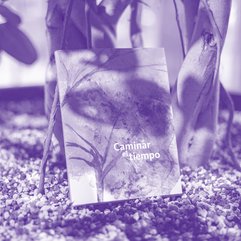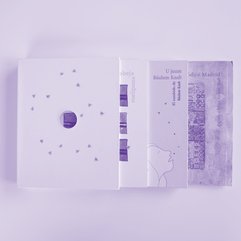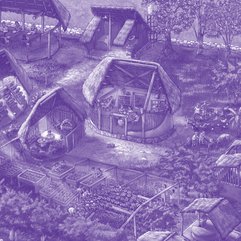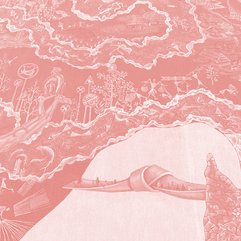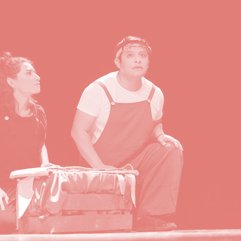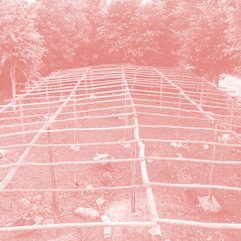Spore hosts: فيروزيات
90 Years of Fairuz - From Home, To Home
17.00-22.30
Save the Date
all ages welcome
in English/in Arabic

In the unique world of "Fairuziat", Fairuz’s voice became a daily presence. We hear it in homes, schools, and public spaces. While her songs and musical plays bring back memories for many, they also reveal a complicated relationship with the past, especially for those in the diaspora who hold on to a romanticized view of "home“. The event celebrates Fairuz’s 90th birthday, focusing on her deep connection to the idea of "home" for Arabs* both in the region and in the diaspora.
The exhibition includes an interactive installation where visitors can engage with her music in a multisensory experience, surrounded by publishing archival materials of posters, booklets and interviews acompained with a guided tour. It explores the mystery of her persona and her role as a symbol of unity and resistance, which sometimes leaned into nationalist sentiment. Her collaboration with the Rahbani Brothers created an idealized image of Lebanon that resonated with listeners, but also presented an unrealistic portrayal of the country and its identity.
The event also features live music and singing with Oud, performance, a mixtape listening session, and a screening of film "Bint El-Haress" (1968), offering visitors a chance to explore her cultural and artistic influences more deeply. Fairuz’s music connects generations, from the older generation to the youth, her songs echoing across the Arab world and beyond—from the coffee rituals of Beirut to the streets of diaspora communities in Berlin.”
Curated by ADIRA, with Sami Rustom, Ahmad Baba.


ADIRA is a slang term in Arabic used in Levantine queer cultures, signifying someone with a strong presence who is capable. Founded in 2023 by Hassandra and xanax_attax, ADIRA is a queer Arabic-pop party series that challenges orientalist stereotypes and celebrates the diversity of queer Arab* identities. Our mission is to revive the nostalgia of 80s, 90s, and early 00s Arabic-pop music. ADIRA is committed to organizing community events that foster individual growth and support emerging and established Arab* talents in Berlin and beyond. In June 2024, ADIRA collective launched the first ever Arab* Drag Festival, a historic event featuring over 30 Arab* artists from Berlin and other cities. The one-day festival welcomed more than 700 attendees from across Europe and receiving extensive media coverage, marking a significant milestone for the queer Arab* community.
*Note: Arab* denotes a diversity of identities and ethnicities within Southwest Asia and North Africa.
Sami Rustom: Born 1988 in Halab (Aleppo), lives in Berlin. They are interested in the disappearances and reappearances movement of the publishing archives and private libraries due to political transformations in the Eastern Mediterranean. Their passion in the artistic career of Fayrouz and Rahbani Brothers plays an essential role in deepening their knowledge about Arabic cultural history. Sami co-founded Fehras Publishing Practices in 2015 and Fayrouz Library in 2012.
Ahmad Baba: Ahmad Baba is a Lebanese multidisciplinary performance artist whose work intersects dance, multimedia, and rituals, reclaiming their necessity within the broader context of archiving cultural practices. He investigates the body as an archive and a digital entity, emphasizing its potential for transformation. Ahmad’s performances reimagine queer temporalities and representations within Arab popular culture, particularly in the context of diaspora, focusing on the Levant and Egypt through the lenses of cinema and music. Additionally, Ahmad is an MA dance movement psychotherapist, with a focus in his work on racialized sexual and gender minorities.




